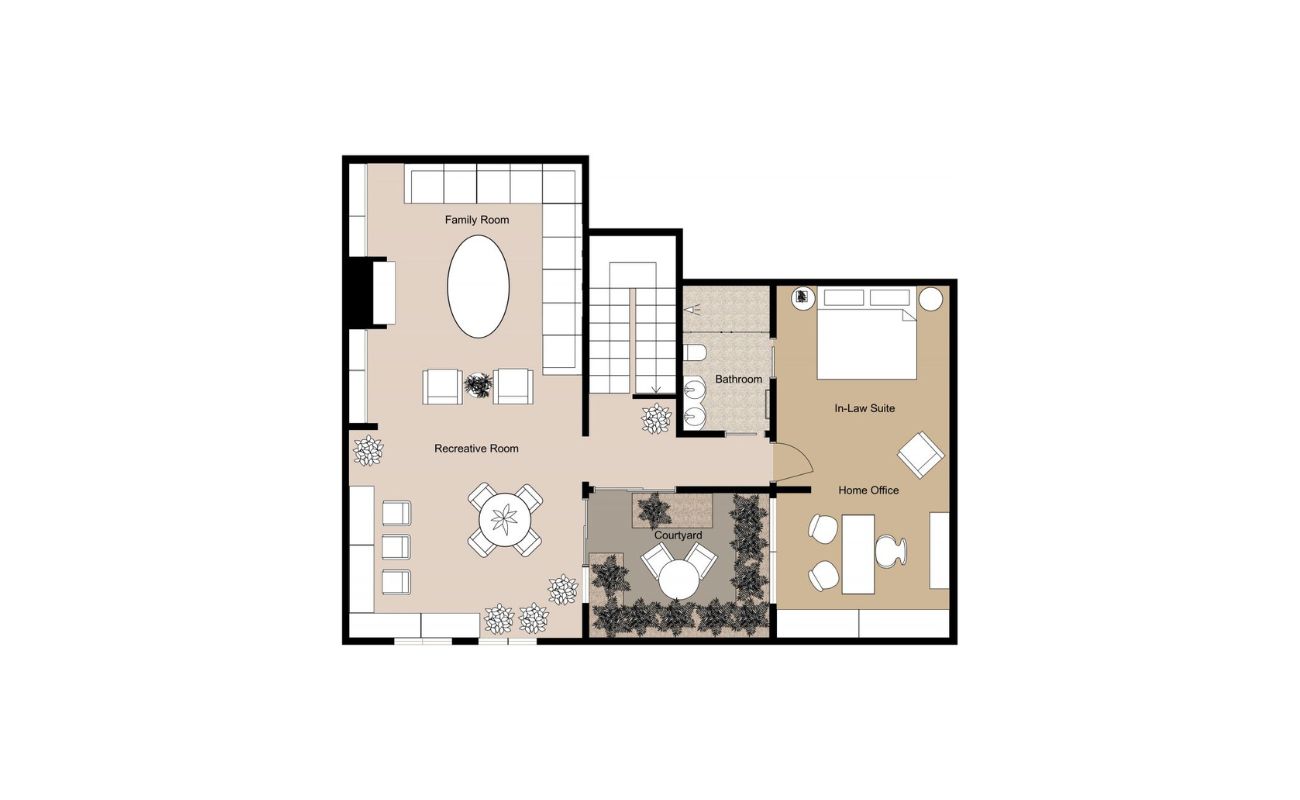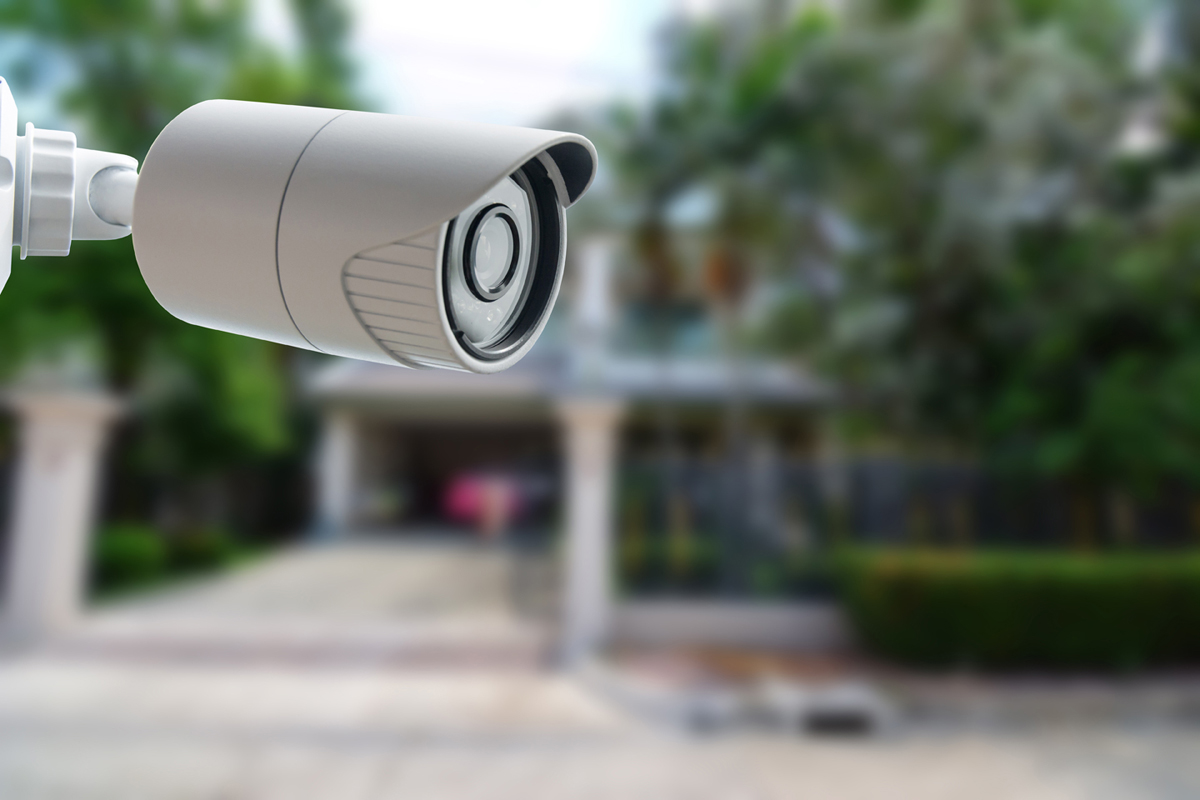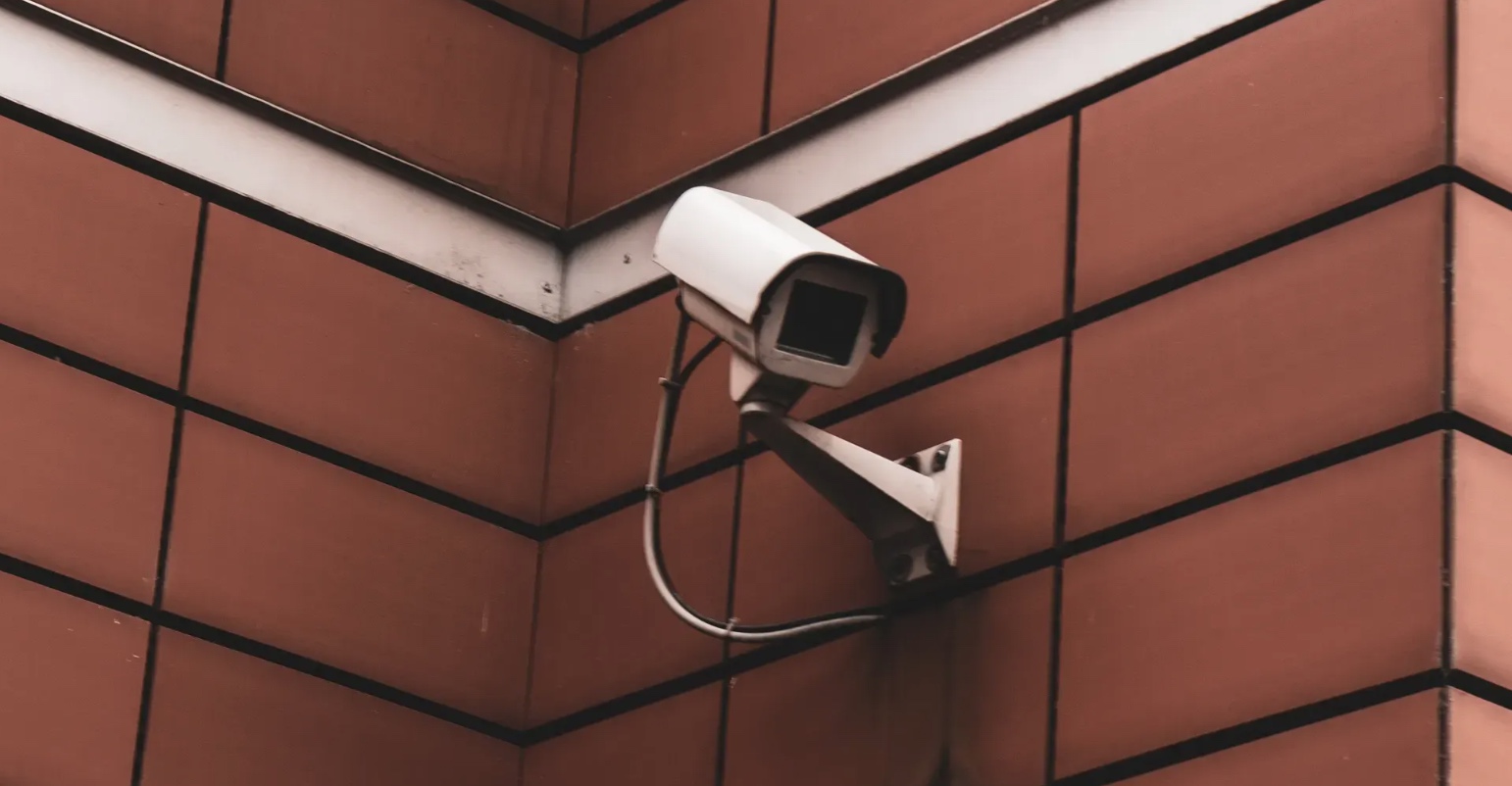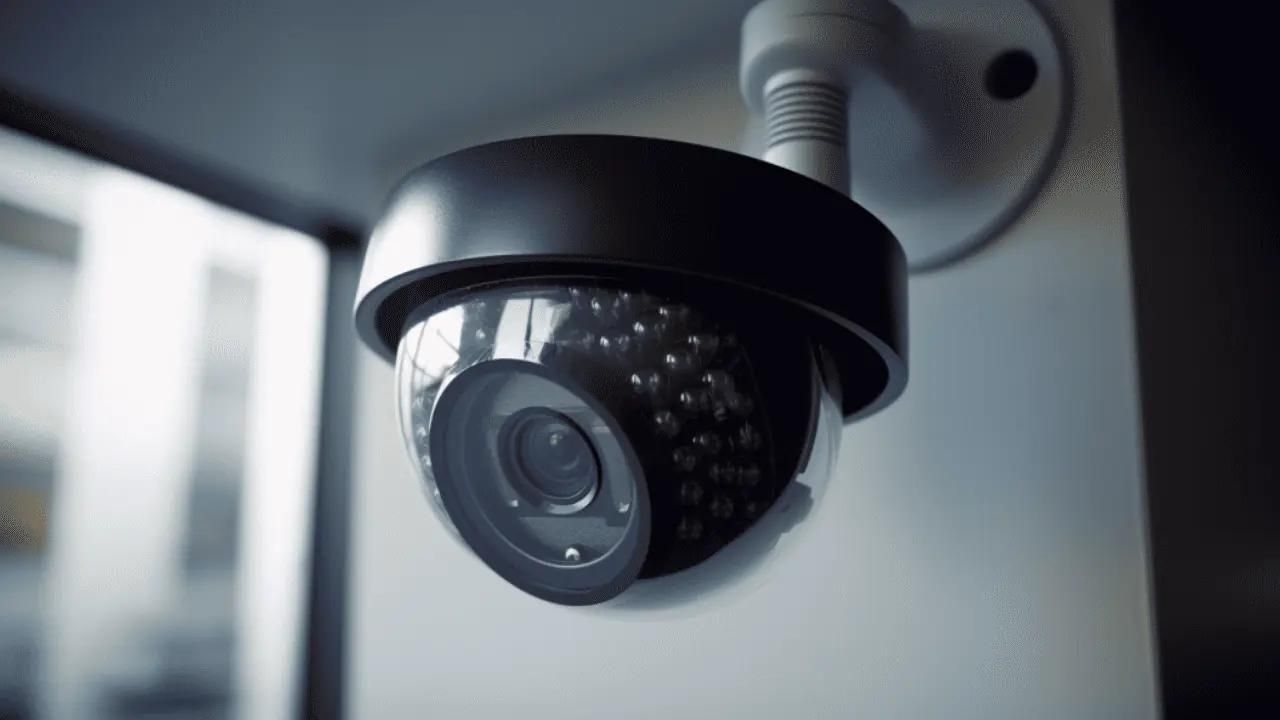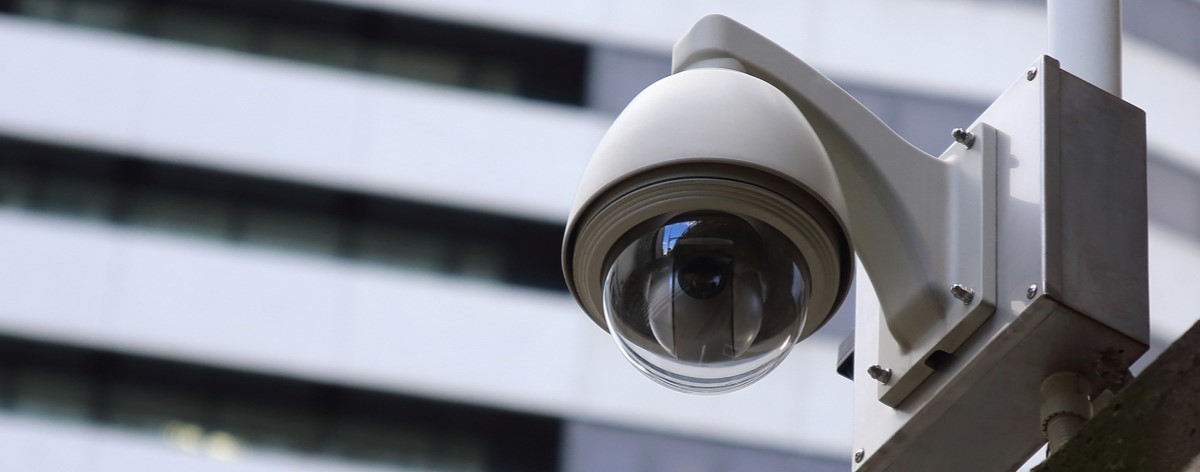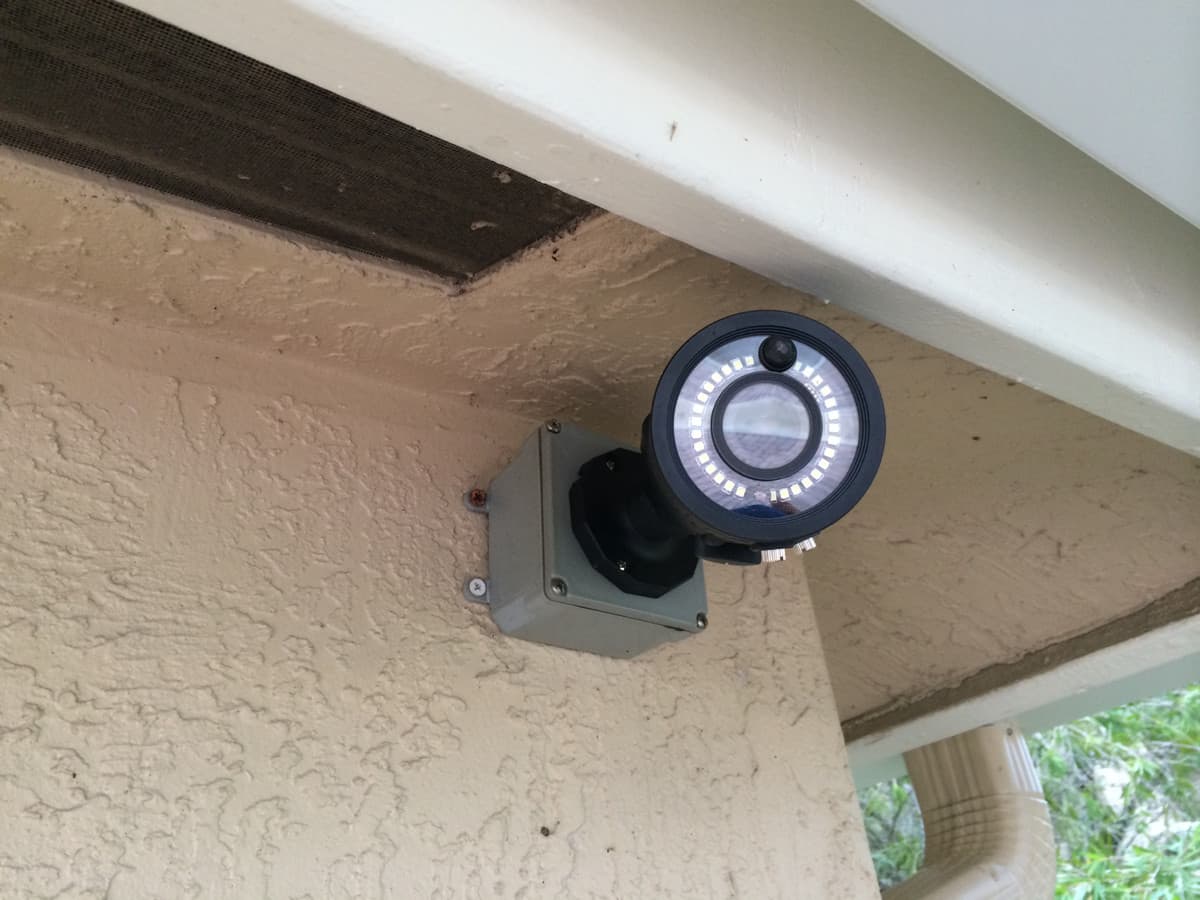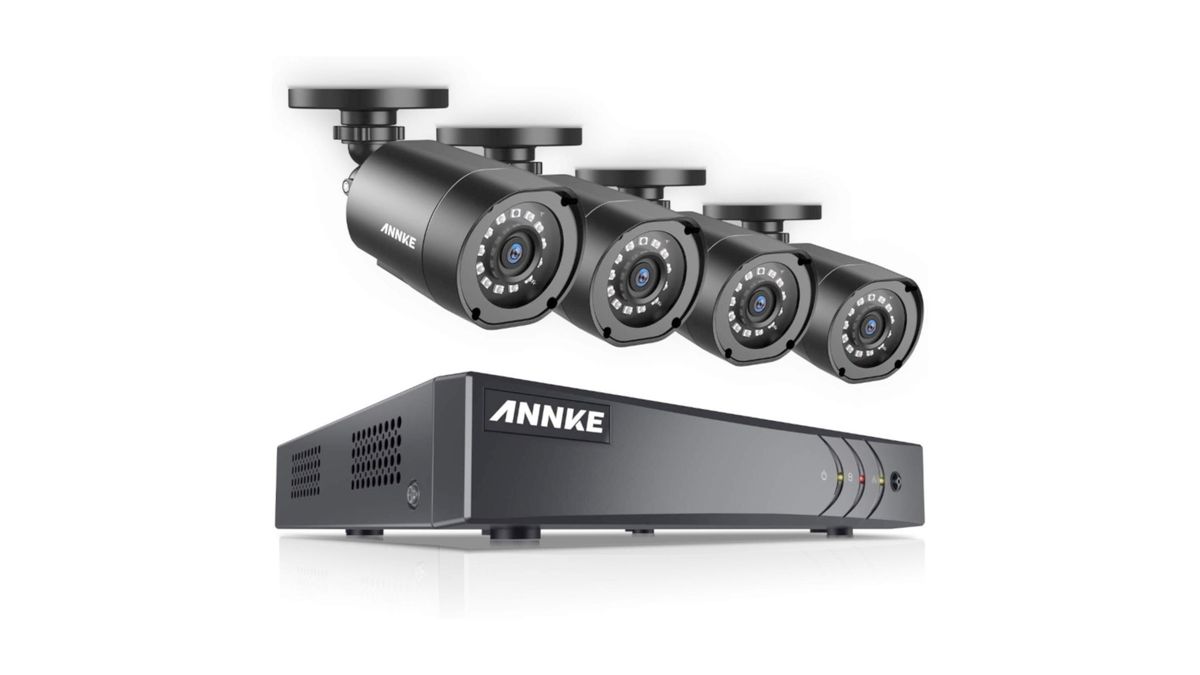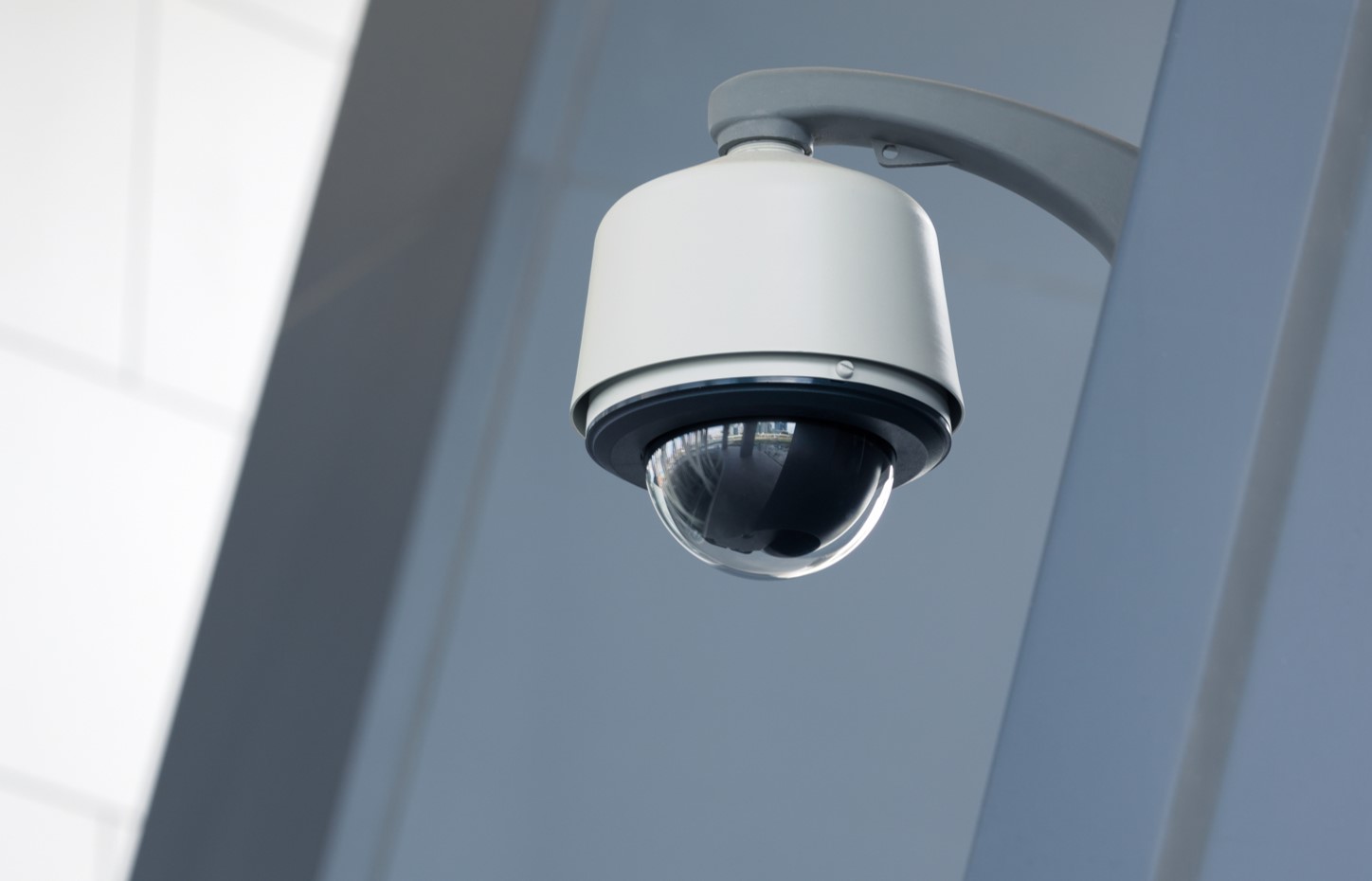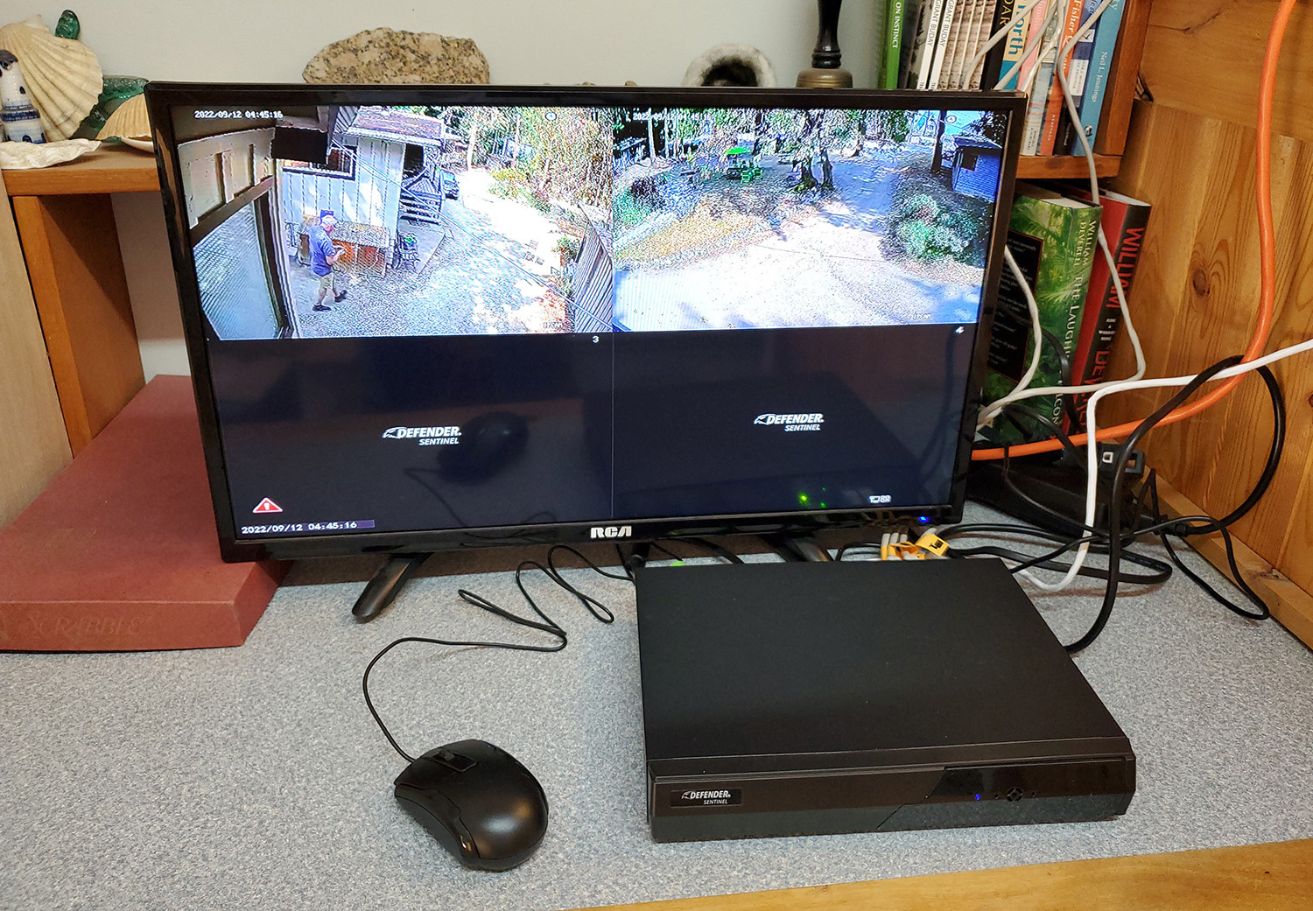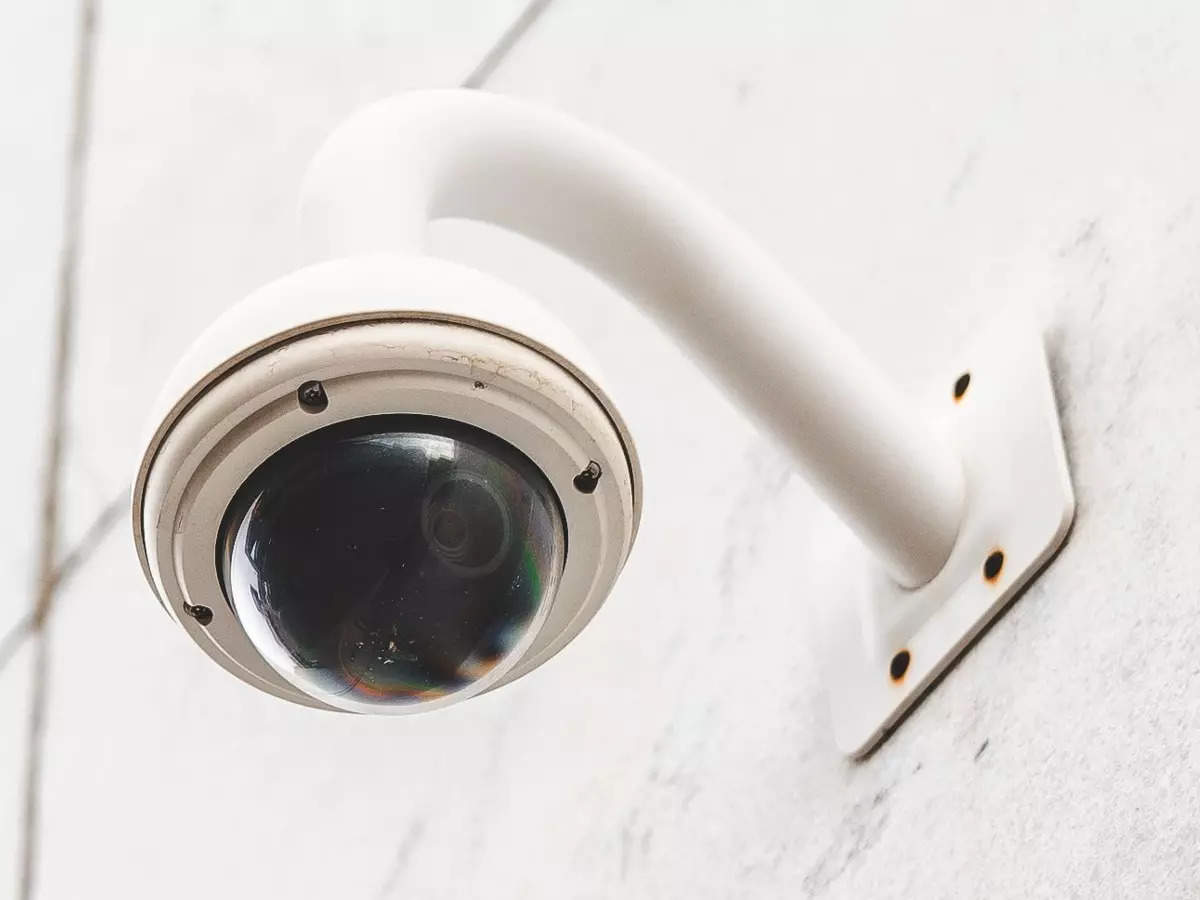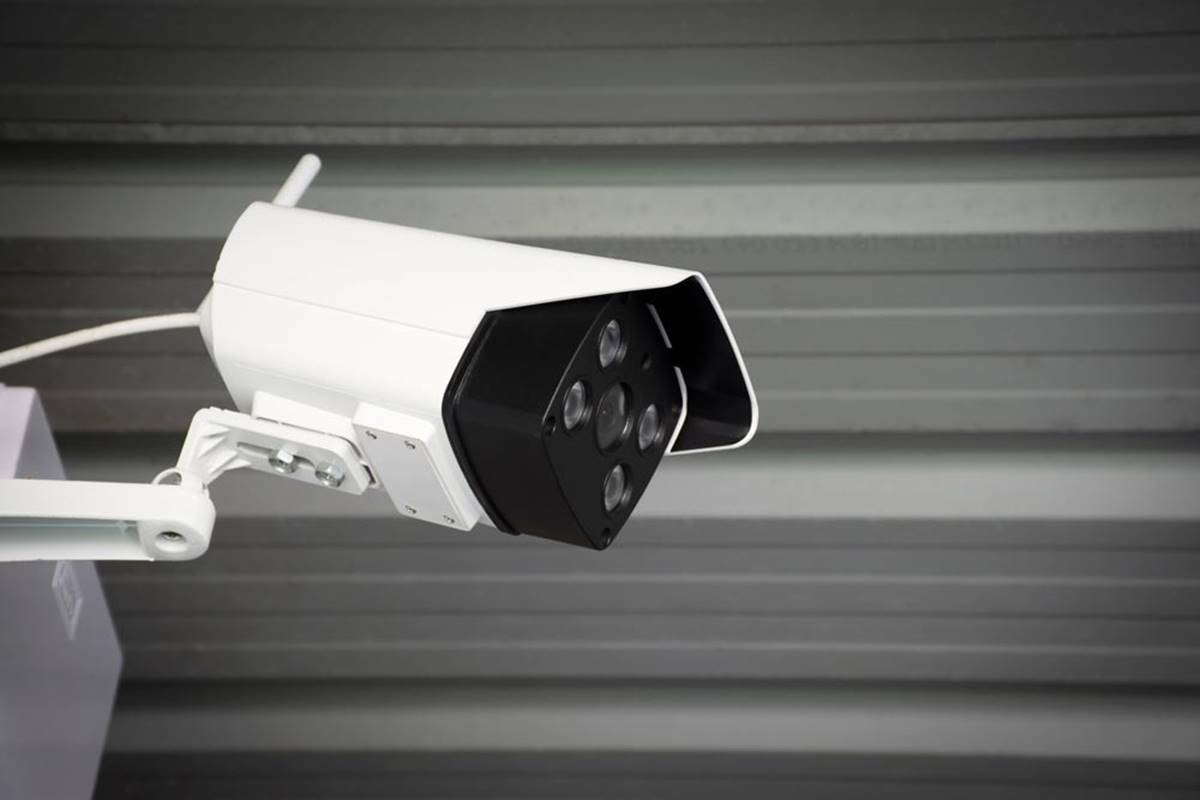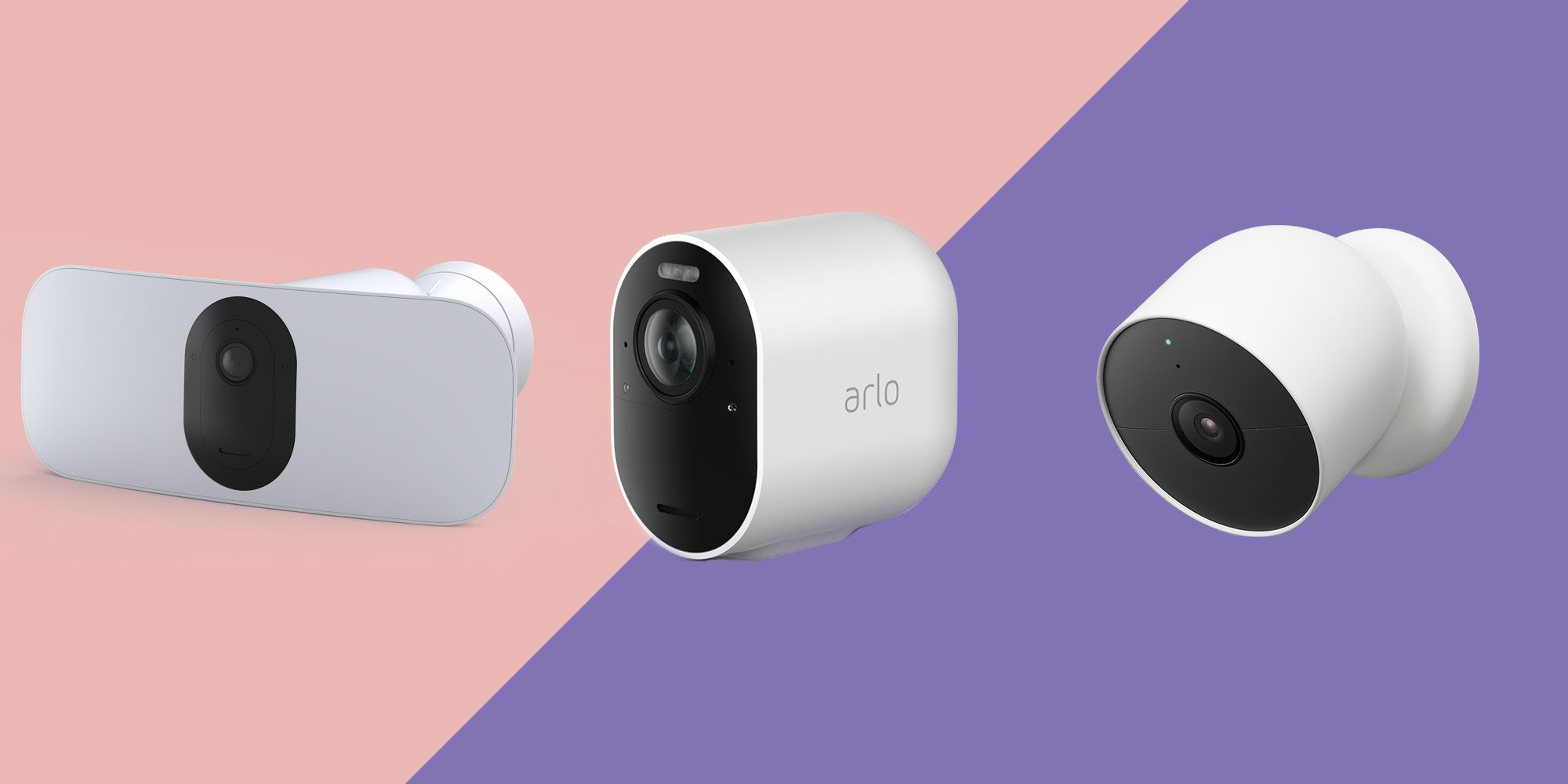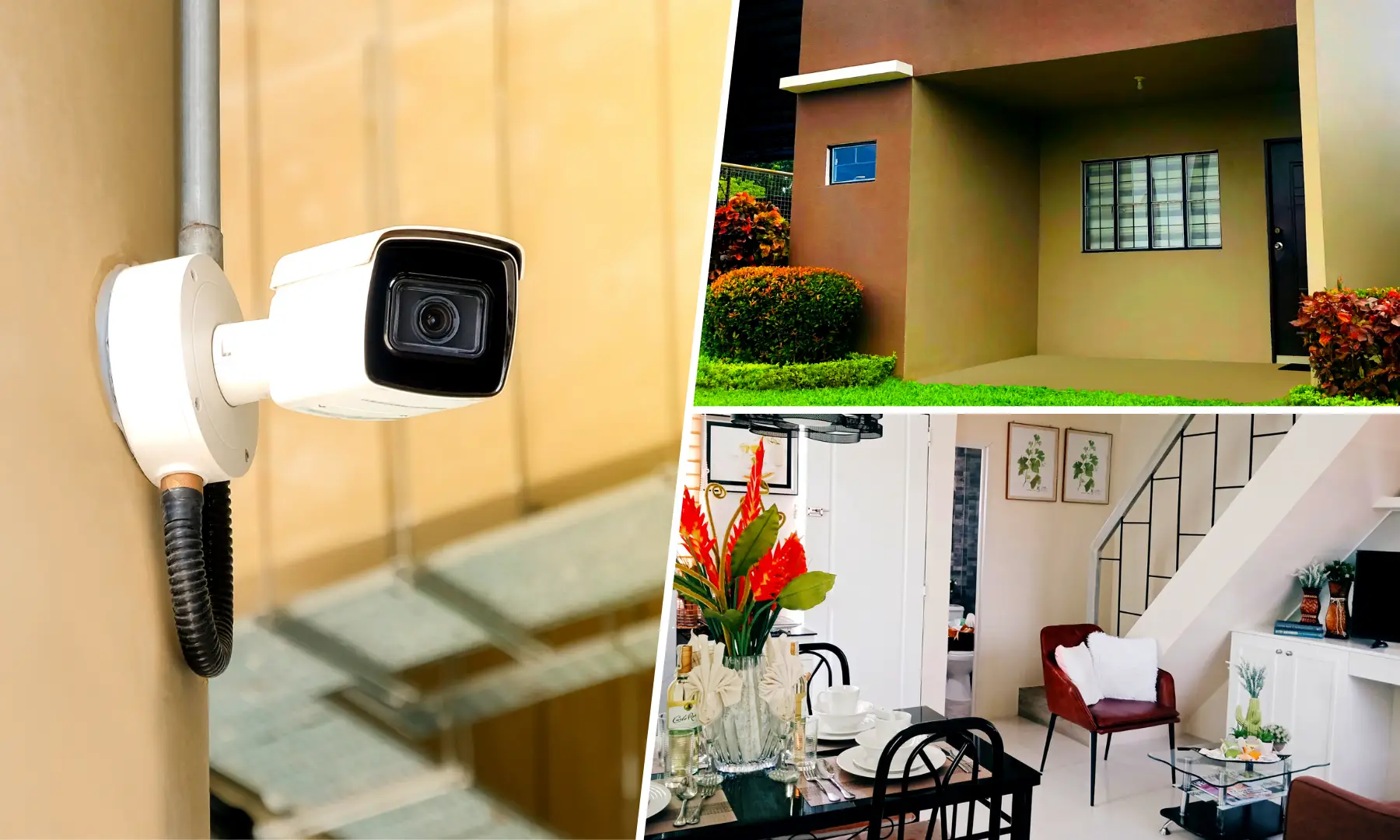Home>Home Security and Surveillance>What Is The Law On Security Cameras
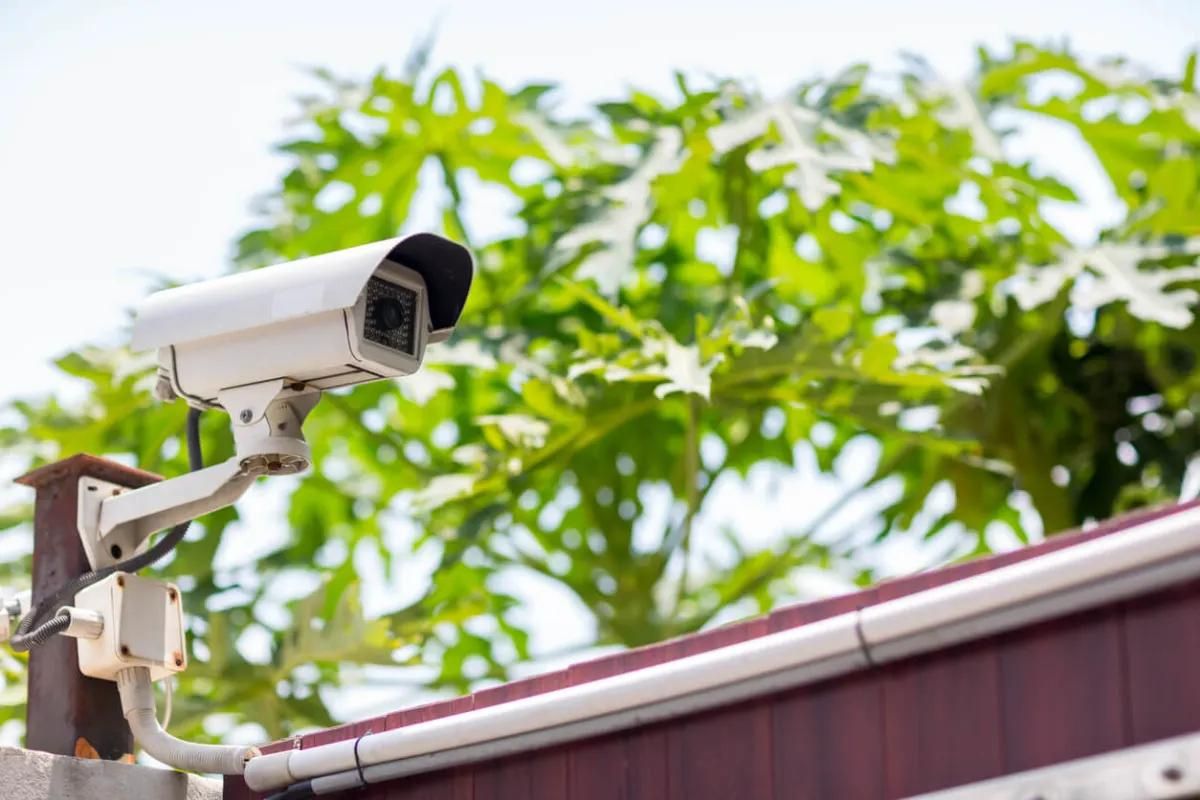

Home Security and Surveillance
What Is The Law On Security Cameras
Modified: October 21, 2024
Discover the law on security cameras for home security and surveillance. Understand your rights and responsibilities when it comes to installing and using security cameras in your property.
(Many of the links in this article redirect to a specific reviewed product. Your purchase of these products through affiliate links helps to generate commission for Storables.com, at no extra cost. Learn more)
Introduction
Welcome to the world of home security and surveillance! In today’s ever-changing landscape, it is crucial for homeowners to take proactive measures to protect their property and loved ones. Security cameras have become an integral part of modern home security systems, providing a sense of safety and peace of mind.
In this comprehensive guide, we will explore the importance of security cameras and delve into the legal considerations and regulations surrounding their use. Understanding the laws governing security cameras is vital to ensure you comply with all relevant requirements and protect the rights and privacy of others.
By staying informed about the legal aspects of security cameras, you can make informed decisions about their installation, placement, and usage in your home. So, let’s dive in and discover what the law says about security cameras!
Key Takeaways:
- Security cameras are crucial for deterring crime, collecting evidence, and providing peace of mind. However, it’s important to follow privacy laws, obtain consent, and comply with surveillance regulations to use them responsibly.
- Non-compliance with security camera laws can lead to penalties, lawsuits, and legal trouble. By following best practices, such as proper placement and secure storage, homeowners can ensure effective and lawful use of security cameras.
Read more: What Are Security Cameras
The Importance of Security Cameras
Security cameras are no longer just a luxury item for the wealthy; they have become an essential tool for homeowners looking to safeguard their property and loved ones. These devices provide a wide range of benefits that go beyond just deterring potential criminals. Let’s explore some of the key reasons why security cameras are so important:
- Crime prevention: One of the primary advantages of security cameras is their ability to deter crime. The presence of visible cameras can make potential intruders think twice before targeting your home. Criminals are less likely to target a property that has security cameras installed, as the risk of being caught on camera and identified increases significantly.
- Evidence collection: In the unfortunate event of a crime occurring on your property, security cameras can provide valuable evidence that can assist law enforcement in identifying and apprehending the perpetrators. High-resolution footage captured by security cameras can help provide clear images of suspects, their actions, and other crucial details that can aid in investigations.
- Remote monitoring: Modern security cameras offer the convenience of remote access through smartphones or computers. This feature allows homeowners to monitor their property in real-time, even when they are away. Whether you’re at work, on vacation, or simply running errands, you can stay connected to your home and keep an eye on any suspicious activity.
- Peace of mind: Knowing that your home is under surveillance can provide a sense of security and peace of mind. Whether you’re inside the house or away, security cameras act as virtual eyes, constantly monitoring your property and alerting you to any potential threats. This peace of mind is invaluable and allows you to focus on other aspects of your life without worrying about the safety of your home.
- Insurance benefits: Many insurance companies offer discounts on home insurance premiums for homeowners who have security cameras installed. These devices are seen as a proactive measure to mitigate risks and protect your property. By taking steps to enhance your home security, you may be eligible for lower insurance rates, resulting in long-term cost savings.
Overall, security cameras are an essential component of a comprehensive home security system. They offer a range of benefits, including crime prevention, evidence collection, remote monitoring, peace of mind, and potential insurance incentives. By investing in security cameras, you are taking an active role in protecting your home, possessions, and loved ones.
Legal Considerations Regarding Security Cameras
When it comes to security cameras, it is important to understand and adhere to the legal considerations surrounding their use. Failure to comply with these laws can result in legal consequences and may violate the privacy rights of individuals. Let’s explore some of the key legal aspects to keep in mind:
- Privacy Laws: Privacy laws vary from country to country and state to state. These laws govern the collection, use, and disclosure of personal information. When installing security cameras, it is crucial to be aware of any privacy laws that apply in your jurisdiction. Ensure that your cameras are not intruding on the privacy of individuals in spaces where they have a reasonable expectation of privacy, such as bedrooms, bathrooms, or changing areas.
- Public vs. Private Property: The rules regarding security cameras differ depending on whether the property is public or private. On private property, homeowners generally have more freedom to install cameras as long as they respect the privacy of others. However, when it comes to public spaces, such as streets or sidewalks, there may be restrictions on the use of security cameras to protect the privacy of individuals in those areas. It is important to familiarize yourself with the regulations specific to your locality.
- Consent and Notification: In many jurisdictions, it is a legal requirement to obtain consent from individuals before recording them on your security cameras. This consent may be implicit if the cameras are visible and placed in public areas, where individuals can reasonably expect to be recorded. However, in certain situations, such as recording in private spaces or in situations where individuals have a heightened expectation of privacy, explicit consent may be necessary. Additionally, it is often required to post signs or notices indicating the presence of security cameras to provide individuals with notice.
- Audio Recording Laws: It is essential to be aware of the laws surrounding audio recording when using security cameras. In some jurisdictions, audio recording without the consent of all parties involved is illegal. This means that if you have security cameras with audio recording capabilities, you may need to notify individuals of the recording or disable the audio feature altogether to comply with the law. Always consult local laws and regulations to understand the specific requirements regarding audio recording.
Understanding and complying with these legal considerations is vital to ensure that your use of security cameras aligns with the law and respects the privacy rights of individuals. Be sure to research the specific laws and regulations in your jurisdiction and consult with legal professionals if you have any doubts or concerns. By taking these steps, you can enjoy the benefits of home security cameras while staying on the right side of the law.
Surveillance Laws and Regulations
When it comes to security cameras and surveillance, there are several laws and regulations in place at the federal, state, and local levels to govern their use. Understanding these laws is crucial to ensure compliance and protect the privacy rights of individuals. Let’s explore the different levels of surveillance laws and regulations:
- Federal Laws: At the federal level, there are various laws that address surveillance and privacy. The most notable of these is the Electronic Communications Privacy Act (ECPA), which governs the interception of electronic communications, including wire, oral, and electronic communications. The ECPA sets forth rules for law enforcement and private individuals regarding the interception, use, and disclosure of electronic communications.
- State Laws: Each state has its own set of laws and regulations regarding surveillance. These laws can vary greatly from state to state and may include restrictions on audio recording, video recording in certain areas, and the disclosure of surveillance footage. It is crucial to familiarize yourself with the surveillance laws specific to your state to ensure compliance.
- Local Laws: In addition to federal and state laws, there may be specific local laws and ordinances that govern the use of surveillance cameras. These laws can vary even within the same state, as different localities may have additional requirements or restrictions. It is essential to research and understand the local laws in your area to ensure that your use of surveillance cameras aligns with the regulations.
- Wiretapping Laws: Wiretapping laws regulate the interception of oral and electronic communications. These laws vary by jurisdiction but generally require the consent of all parties involved in the conversation before recording can take place. It is important to understand the wiretapping laws in your area to ensure that you are in compliance when using surveillance cameras with audio recording capabilities.
By familiarizing yourself with the federal, state, and local laws surrounding surveillance, you can ensure that your use of security cameras is within the legal boundaries and respects the privacy rights of individuals. Remember, laws and regulations can change, so it is essential to stay updated on any updates or amendments that may impact your use of surveillance cameras.
When installing security cameras, make sure to place them in areas where they can capture clear images of any potential intruders. Avoid pointing them at areas where privacy is expected, such as windows or private property.
Compliance with Security Camera Laws
When it comes to security camera laws, complying with the legal requirements is essential to ensure that your use of surveillance cameras is within the boundaries set by the law. Let’s explore some key areas of compliance:
- Registration and Licensing: Some jurisdictions require homeowners or businesses to register their security cameras or obtain a license for their use. This helps authorities maintain a record of surveillance systems in the area and ensures that the cameras are being used for legitimate purposes. It is important to check with your local law enforcement or regulatory agencies to determine if registration or licensing is required in your jurisdiction.
- Maintenance and Monitoring: Proper maintenance and monitoring of security cameras are crucial for not only their effectiveness but also compliance with the law. Regularly inspect and maintain your cameras to ensure they are in proper working order. Additionally, if you are monitoring the cameras live or recording footage, make sure to adhere to the laws and regulations regarding privacy and data protection.
- Data Protection and Retention: It is essential to handle and store the recorded footage from your security cameras in a manner that protects the privacy rights of individuals and complies with data protection laws. This may include encrypting the footage, implementing access controls to prevent unauthorized viewing, and establishing a retention policy to determine how long you will keep the recorded footage. Be sure to familiarize yourself with the applicable data protection laws in your jurisdiction to avoid any legal issues.
By taking steps to comply with security camera laws, you can ensure that your use of surveillance cameras is legal and respects the rights and privacy of individuals. Registration and licensing requirements, proper maintenance, and monitoring, as well as data protection and retention practices, are crucial aspects of legal compliance. Always stay informed about the specific laws and regulations in your jurisdiction and consult with legal professionals if you have any doubts or concerns.
Read more: What Is Security Camera
Consequences of Non-Compliance with Security Camera Laws
Failure to comply with security camera laws can result in various consequences, ranging from civil penalties to criminal charges and even lawsuits. It is important to understand the potential ramifications of non-compliance to ensure that your use of security cameras aligns with the law. Let’s explore some of the possible consequences:
- Civil Penalties: Non-compliance with security camera laws can lead to civil penalties imposed by regulatory authorities. These penalties can include fines, monetary penalties, or requirements to rectify the non-compliance within a specific timeframe. The severity of civil penalties can vary depending on the nature and extent of the violation.
- Criminal Penalties: In some cases, non-compliance with security camera laws can result in criminal charges. This is more likely to happen if the violation involves serious privacy breaches, unauthorized surveillance, or intentional disregard for the law. Criminal penalties can include fines, probation, or even imprisonment, depending on the jurisdiction and the specific circumstances of the case.
- Lawsuits and Legal Ramifications: Non-compliance can also lead to lawsuits and legal ramifications. Individuals who believe that their privacy rights have been violated by the use or misuse of security cameras may take legal action against you. This can result in costly litigation, damage to your reputation, and potential financial liabilities in the form of legal fees, settlements, or judgments.
It is important to remember that the consequences of non-compliance can vary depending on the jurisdiction and the specific circumstances of each case. It is always advisable to familiarize yourself with the security camera laws in your area, seek legal guidance if needed, and ensure that you are in full compliance to avoid any adverse consequences.
By understanding and adhering to security camera laws, you can protect yourself from potential penalties, lawsuits, and legal ramifications. Compliance with the law not only ensures that you are respecting the rights and privacy of others but also safeguards your own interests and preserves the integrity of your home security system.
Best Practices for Security Camera Usage
To ensure the optimal effectiveness and compliance of your security camera system, it is important to follow best practices for their installation, usage, and management. Implementing these practices will not only enhance the security of your property but also help you adhere to relevant laws and regulations. Here are some key best practices for security camera usage:
- Placement and Coverage: Proper placement and coverage of security cameras are essential for maximizing their effectiveness. Consider the vulnerable areas of your property, such as entry points, driveways, and backyard, and install cameras in strategic locations that provide a clear view of these areas. Also, ensure that the cameras are positioned out of reach to prevent tampering or vandalism. Regularly review and adjust camera angles to maintain optimal coverage.
- Warning Signs and Notifications: Make it clear to visitors, intruders, and the public that your property is under surveillance. Display signs or stickers indicating the presence of security cameras to act as a deterrent and provide notice to individuals. Additionally, comply with any local requirements regarding the notification of camera usage. Notifying others of the camera’s presence helps protect their privacy rights and demonstrates your commitment to responsible camera usage.
- Secure Storage and Access Control: Proper storage and access control of recorded footage are crucial aspects of security camera management. Ensure that your recording system is secure and inaccessible to unauthorized individuals. Implement user authentication and encryption to protect the stored footage from unauthorized access or tampering. Additionally, establish procedures for granting access to the recorded footage only to authorized individuals, such as law enforcement or legal authorities, when necessary.
By following these best practices, you can ensure that your security camera system is effective, compliant with the law, and respects the rights and privacy of individuals. Proper placement and coverage, along with visible warning signs, act as a deterrent and provide notice to others. Secure storage and access control mechanisms help protect the recorded footage and prevent unauthorized access.
Remember to stay updated with the latest laws and regulations regarding security camera usage in your jurisdiction. Consulting with security professionals or legal experts can provide you with additional guidance and ensure that you are following the best practices specific to your area.
By implementing these best practices, you can optimize the benefits of your security camera system, maintain compliance with the law, and ensure the safety and security of your property and loved ones.
Conclusion
As technology continues to advance, security cameras have become integral to home security systems. They provide homeowners with a powerful tool to deter criminals, collect evidence, and monitor their property remotely. However, it is vital to understand and comply with the legal considerations and regulations surrounding their use.
In this comprehensive guide, we have explored the importance of security cameras and the legal factors that come into play when using them. We discussed the need to respect privacy laws, differentiate between public and private property, obtain proper consent, and adhere to audio recording regulations. We also highlighted the various surveillance laws and regulations at the federal, state, and local levels, including wiretapping laws.
Compliance with security camera laws is of utmost importance. It involves aspects such as registration and licensing, maintenance and monitoring, and data protection and retention. By complying with these requirements, homeowners can ensure they are using security cameras within the bounds of the law while protecting the privacy rights of individuals.
Non-compliance with security camera laws can have severe consequences. It can result in civil and criminal penalties, along with lawsuits and legal ramifications. Therefore, it is crucial to be informed and proactive about understanding and abiding by the regulations set forth by the applicable authorities.
To maximize the effectiveness and compliance of security cameras, homeowners should follow best practices. This includes strategic placement and coverage of cameras, displaying warning signs to notify others of surveillance, and implementing secure storage and access control measures for recorded footage.
In conclusion, security cameras provide invaluable benefits for homeowners seeking to protect their property and loved ones. However, it is essential to operate within the legal framework and adhere to the regulations to ensure the responsible and lawful use of these devices. By doing so, homeowners can take full advantage of the security and peace of mind that security cameras offer while respecting the privacy rights of individuals.
Frequently Asked Questions about What Is The Law On Security Cameras
Was this page helpful?
At Storables.com, we guarantee accurate and reliable information. Our content, validated by Expert Board Contributors, is crafted following stringent Editorial Policies. We're committed to providing you with well-researched, expert-backed insights for all your informational needs.
